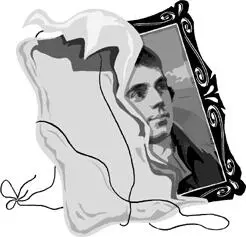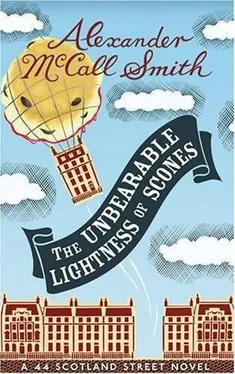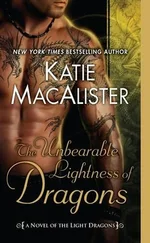Alexander Smith - Unbearable Lightness of Scones
Здесь есть возможность читать онлайн «Alexander Smith - Unbearable Lightness of Scones» весь текст электронной книги совершенно бесплатно (целиком полную версию без сокращений). В некоторых случаях можно слушать аудио, скачать через торрент в формате fb2 и присутствует краткое содержание. Жанр: Триллер, на английском языке. Описание произведения, (предисловие) а так же отзывы посетителей доступны на портале библиотеки ЛибКат.
- Название:Unbearable Lightness of Scones
- Автор:
- Жанр:
- Год:неизвестен
- ISBN:нет данных
- Рейтинг книги:4 / 5. Голосов: 1
-
Избранное:Добавить в избранное
- Отзывы:
-
Ваша оценка:
- 80
- 1
- 2
- 3
- 4
- 5
Unbearable Lightness of Scones: краткое содержание, описание и аннотация
Предлагаем к чтению аннотацию, описание, краткое содержание или предисловие (зависит от того, что написал сам автор книги «Unbearable Lightness of Scones»). Если вы не нашли необходимую информацию о книге — напишите в комментариях, мы постараемся отыскать её.
Unbearable Lightness of Scones — читать онлайн бесплатно полную книгу (весь текст) целиком
Ниже представлен текст книги, разбитый по страницам. Система сохранения места последней прочитанной страницы, позволяет с удобством читать онлайн бесплатно книгу «Unbearable Lightness of Scones», без необходимости каждый раз заново искать на чём Вы остановились. Поставьте закладку, и сможете в любой момент перейти на страницу, на которой закончили чтение.
Интервал:
Закладка:
“My own? Well, not really,” he replied vaguely. “Somebody else’s painting. I’m just… just looking after it for him.”
“Nice frame,” observed Magnus. “What’s the painting like? It’s not a MacTaggart, by any chance?” He pointed to a door behind them; they were standing directly outside the house once owned by Sir William MacTaggart.
Angus laughed. “No. Nothing like that. Nothing of any real consequence.” He felt himself blushing as he spoke; Angus, a direct speaker, had never found it easy to lie, and rarely did so.
“Well,” said Magnus. “It’s good to see Cyril. And how are Cyril’s puppies? I haven’t seen them in the gardens recently.”
Angus blushed again, more deeply this time. “I’m sure that they’re all right,” he said. “They’ve gone off to a good home.”
Magnus smiled. “Well, that’s good news,” he said. “I had been wondering how you would find homes for all of them. But you obviously did. And one can’t be too careful, apparently. I was reading the other day about somebody whose puppies were stolen and sold to a restaurant. Would you believe it?”
Angus swallowed hard. “That’s bad,” he said. His voice sounded distant.
“Oh well,” said Magnus. “I mustn’t linger. And you’ve got your Raeburn to get back to the studio.”
Angus gave a start. “Raeburn?”
“Oh, I’m sure it’s not that,” said Magnus. “But one might live in hope.”
Angus forced a laugh. “I wish I owned a Raeburn,” he said. He did not blush this time; he did not own a Raeburn, even if he happened to be carrying one. He did not own this portrait of Burns; that was the important point. Lard O’Connor owned it, or… perhaps somebody else.
He completed his journey to the flat and carried the painting carefully into his studio. Then, setting it down against a wall, he carefully slit the paper down one side and removed it. For a few minutes he did nothing other than stand in front of the painting, absorbing every detail: the well-kent face, with its finely sculpted, intelligent features; the dark hair; the prominent eyebrows; the white, pleated neck stock. And behind it the colours: the dark reds, the rich blacks against which Raeburn painted his sitters, although in this painting there was a table behind the sitter and on this table there was a large, decorated jardinière.
Angus dropped down to his knees and examined the jardinière at close quarters. He had seen a picture of it before somewhere; he was sure of that – somewhere, a jardinière, or a memory of a jardinière. He looked at Burns, and the poet stared back at him.
“Dear Rabbie,” he muttered. “We’re a parcel of rogues in a nation. I know that. But one day, maybe, that will all change. Maybe.”

62. The Marrying Kind of Man
“What on earth are you doing down on your hands and knees, Angus?” Domenica had knocked, but had not been heard. When Angus was in his studio, with the door closed, that could happen, and so, finding the front door ajar – Angus did not bother about security: “such a bourgeois notion,” he had said to Domenica – she pushed it further open and entered the flat.
Domenica wrinkled her nose. She had always found that Angus’s flat had a strange smell to it – not an entirely disagreeable smell, it must be said, but a strange one nonetheless. It was a mixture of oil paint from the studio, kippers from the kitchen – Angus bought kippers each week from Creelers at the farmers’ market – and dog. Domenica had been assured by Angus that Cyril was bathed regularly – at least twice a year – and that as dogs went he was not particularly smelly. But she could still detect his presence through the odour of slightly damp fur and gaminess that wafted about him.
She moved through the corridor, noticing that Angus had not opened his mail for a few days but had left it where the postie tossed it each morning, in a pile in the corner. If Angus were married – not that anybody would marry him, she thought – then all of this would be changed. The skylights, which she now looked up at, would be cleaned, the floorboards would be stripped and revarnished, Cyril would be shampooed once a week; everything would be sparkling.
And Angus himself would be spruced up. A wife could get rid of his clothes and march him round to Stewart, Christie for a complete new wardrobe. That Harris tweed jacket of his would be the first to go, although even a charity shop would draw the line at that. Perhaps the best thing would be to get the Council to come round for a special collection, in the way in which they came round to uplift old fridges and beds, if you booked them. The Council could come and take away all of Angus’s clothes.
But all of this was completely hypothetical, Domenica reminded herself. Nobody would marry Angus; nobody could bear to take the whole project on. Certainly she would not… She stopped herself. It was all very well for her to say that she would never marry Angus, but could she really say that nobody else would? There were many desperate women in Edinburgh – legions of them – who would probably be quite happy to marry any man, even Angus, if a man were to ask them, which alas he had not. These women would do anything to secure a husband, and would overlook any defects in a man if needs be. Domenica herself was not in this position, but she knew many who were. Lack of inclination on the man’s part to marry was a comparatively minor issue for such women. One friend of Domenica’s had married a man of such talent and sensitivity in the field of interior decoration that it was widely felt that he was unlikely to have the time to marry. Single-minded pursuit, traps and – or so Domenica felt – sheer force on the woman’s part had eventually settled that matter. Another friend, having despaired of finding a full-size husband, had settled for a man who was so thin as to be almost invisible when viewed from the side. He had himself been keen to marry, but had never found anybody, probably, Domenica thought, because nobody had ever actually seen him. “Better than nothing,” her friend had said philosophically. And it had been a very happy marriage; from the merest scraps, from part of something, may something whole be made.
But then the thought occurred to Domenica: what if another woman, one of these desperate women, were to marry Angus? Would she resent this other woman’s taking her friend from her? Angus would presumably not be allowed to drop in on Scotland Street with the comfortable frequency of their current arrangement. Women did not like their husbands to have other women as friends, no matter how innocent the relationship. Angus had always been there in her life; without him, things would be quite different. Perhaps… But what was the point of marrying Angus, other than to look after him? Did she really want to be in his company all the time, or at least for as much time as being married to him would entail? She thought not.
She pushed open the studio door and saw Angus on his hands and knees. He looked up, smiled and rose to his feet.
“I was inspecting a painting,” he said. “A very beautiful – and, if I am proved right – a very important painting too.”
Intrigued, Domenica crossed the floor of the studio to stand before the portrait.
“I see,” she began. “Is it who I think it is?”
Angus brushed the dust off the knees of his trousers. “It certainly is,” he said. “Or rather, I think it is.”
“And who painted it, do you think?” asked Domenica.
Angus let the question hang in the air for a few moments. Then he said, “Raeburn. Henry Raeburn.”
Читать дальшеИнтервал:
Закладка:
Похожие книги на «Unbearable Lightness of Scones»
Представляем Вашему вниманию похожие книги на «Unbearable Lightness of Scones» списком для выбора. Мы отобрали схожую по названию и смыслу литературу в надежде предоставить читателям больше вариантов отыскать новые, интересные, ещё непрочитанные произведения.
Обсуждение, отзывы о книге «Unbearable Lightness of Scones» и просто собственные мнения читателей. Оставьте ваши комментарии, напишите, что Вы думаете о произведении, его смысле или главных героях. Укажите что конкретно понравилось, а что нет, и почему Вы так считаете.












